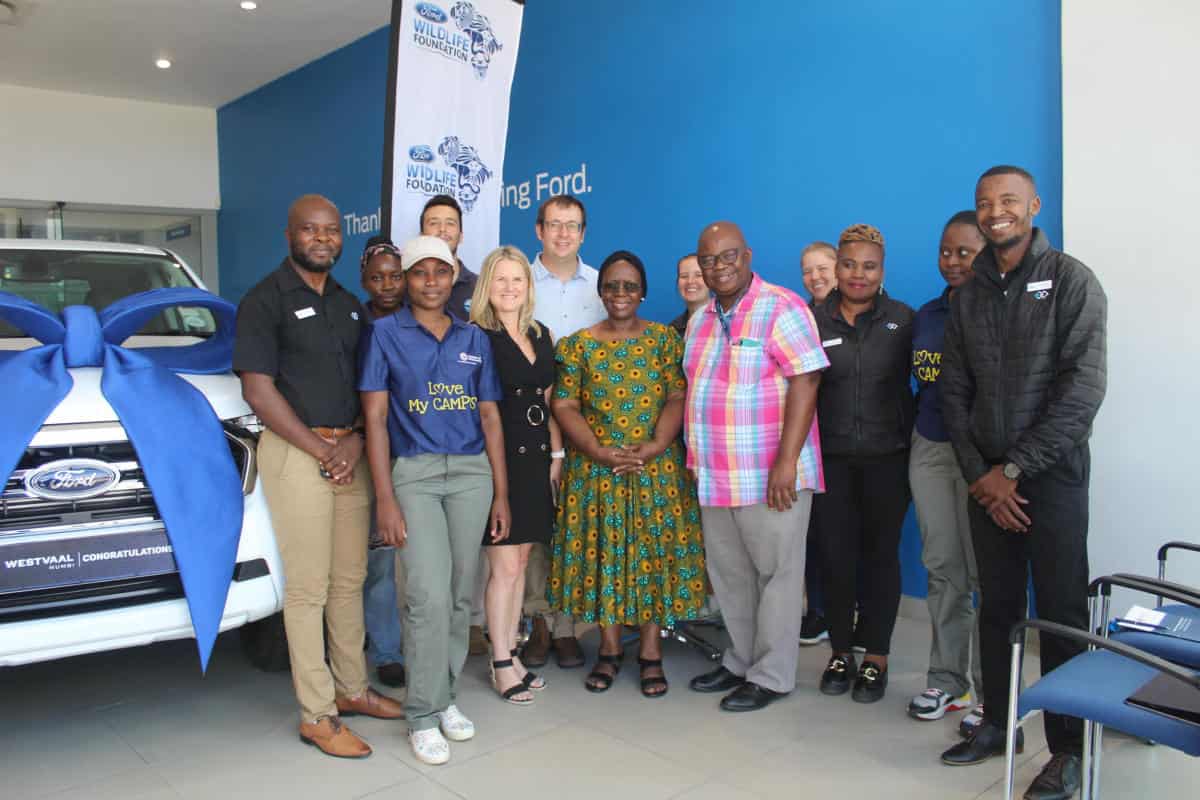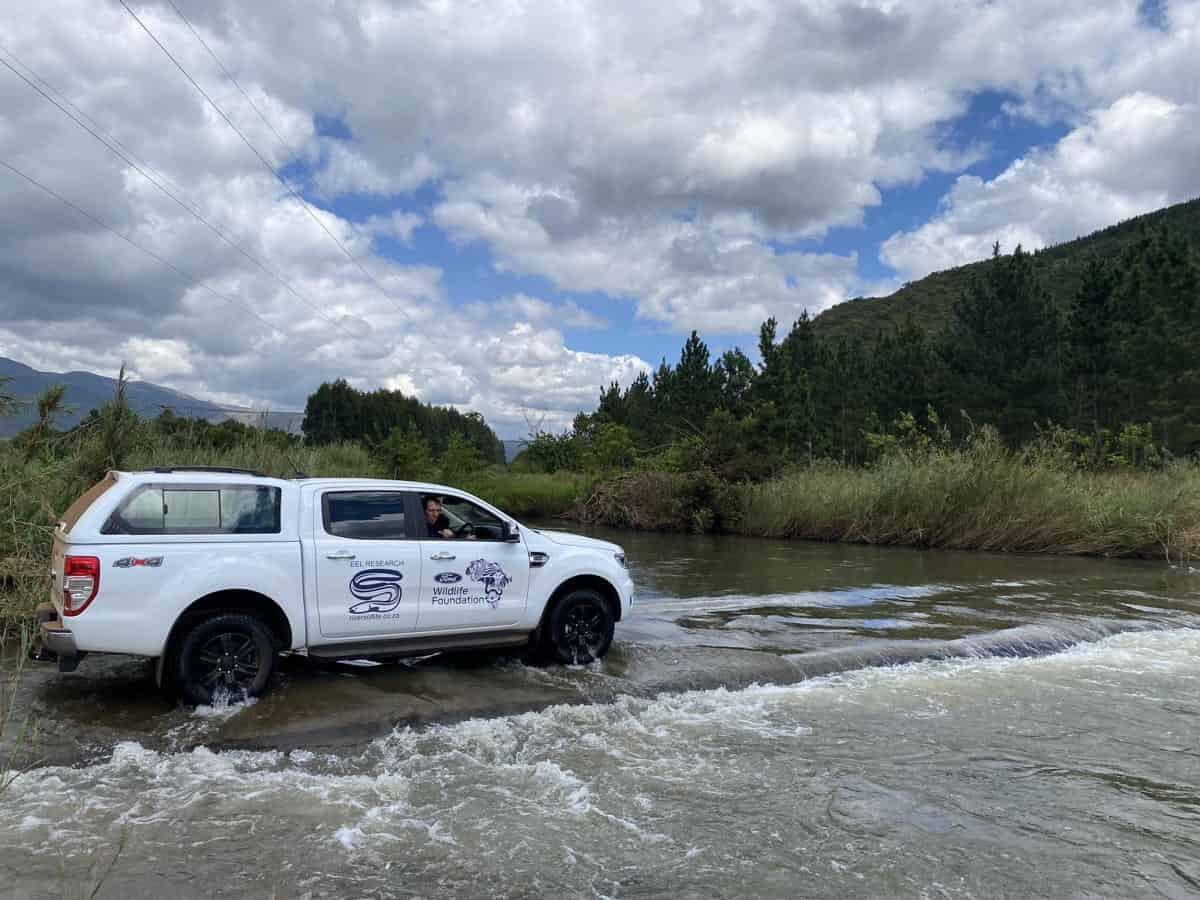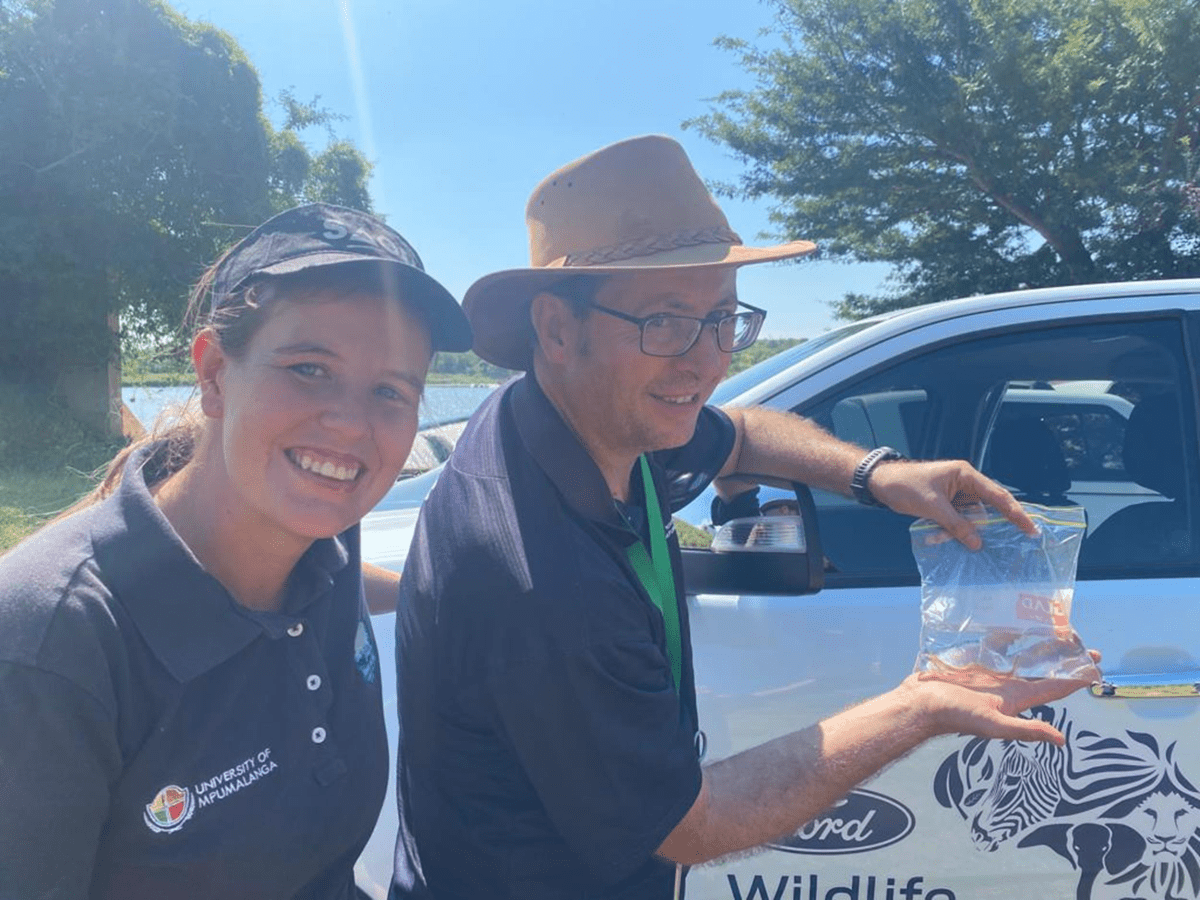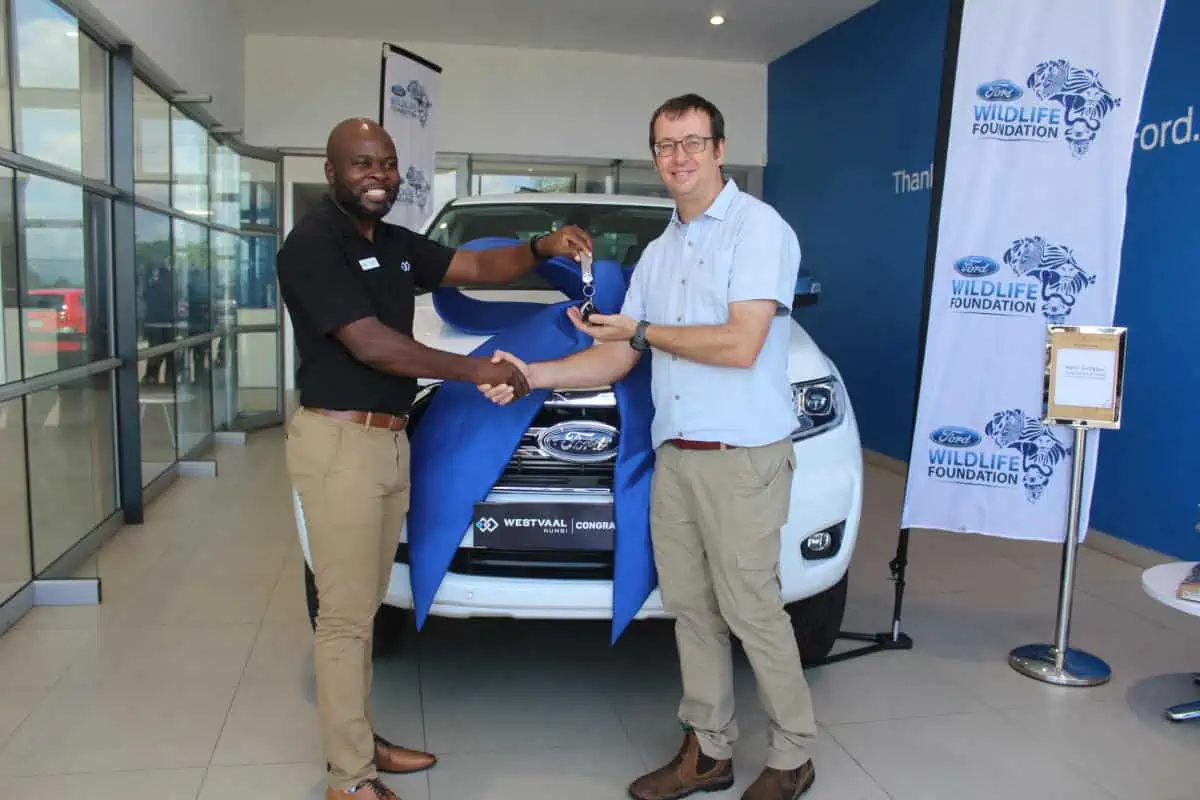- The vehicle will support the team’s collaborative research project to conserve the most valuable and threatened fishes found on the east coast of Africa – with particular focus on the ecology of western Indian Ocean Anguillid eels
- FWF currently provides vehicles to 27 conservation, research and education projects across South Africa and one project in Mozambique.
The Ford Wildlife Foundation (FWF) is supporting the protection of threatened freshwater and marine environments and their important fishes by providing a Ford Ranger Double Cab 4×4 to the Rivers of Life Programme at the University of Mpumalanga.
This vehicle will be used for one of the programme’s new projects that focuses on the ecology of western Indian Ocean Anguillid freshwater eels and their contribution to sustainable fisheries and livelihood along the east coast of Africa.
“Southern Africa’s freshwater eels are the world’s mightiest migrating fish species, swimming more than 10 000km, upstream from the Indian Ocean into our east-flowing rivers,” says Professor Gordon O’Brien, director of the Rivers of Life Programme at the University of Mpumalanga. “While we boast the greatest diversity of freshwater eels globally, which are now the world’s most valuable fish commodity, all of our eels are threatened by habitat loss due to barrier formation, pollution, alien species and over exploitation.”
The team’s preliminary data indicates that as much as 60 percent of freshwater eel habitat has been removed in southern Africa, and as much as 40 percent across the whole African east coast distribution area. “We still have viable populations that can support a recovery plan, and we have an opportunity to contribute to the sustainable, formal use, conservation and management of these eels in the region, but we need action,” O’Brien says.
Accordingly, a team of researchers from the University of Mpumalanga is working on the problem throughout the wilderness area of the region. It is a collaborative research project supported by the Western Indian Ocean Marine Science Association which involves scientists from South Africa, Mozambique and Kenya to conserve the region’s most valuable and threatened eels.
“In our region the social, economic and ecological value of eels is unknown, and while these fishes face multiple threats we are unable to conserve these species,” O’Brien says. “We have at least three years to go with our study and hope to turn it into a programme that will be dedicated to the sustainable conservation and management of the Western Indian Ocean freshwater eels.”
With so many riverine habitats to explore, many of which are in wild areas that are difficult to access, the research has been limited thus far since the project started in 2019. It was subsequently also hampered by COVID-19 in 2020 and 2021. “The support from the Ford Wildlife Foundation through the provision of a Ranger Double Cab 4×4 will enable our teams to reach remote areas that are essential for this much-needed research,” O’Brien says. “With a capable 4×4 vehicle that we can rely on from FWF, it allows us to leverage additional bursary and operational costs to benefit the project as a whole, which can now be expanded into southern Africa from the University of Mpumalanga.”
The Ford Wildlife Foundation currently supports 27 projects across South Africa and one project in Mozambique. This comprises 17 conservation projects, six research projects and five environmental education projects.
“The freshwater eels research project being led by the University of Mpumalanga, and involving scientists from Mozambique and Kenya, is a fantastic collaborative initiative that isn’t just tackling the issue of a threatened species, but is addressing connected freshwater and marine ecology and sustainability as a whole,” says Lynda du Plessis, FWF Manager.
“We look forward to seeing our FWF Ford Ranger helping the team gain valuable information that is essential to protect the rich biodiversity of the region,” Du Plessis says. “Partnering with projects such as this reflects Ford’s values and commitment to both caring for each other and protecting the environment.”
Vehicles are loaned to the partner organisations for a period of two years, with servicing and maintenance provided by the Ford dealer network.
For more information on the Rivers of Life Programme visit: https://riversoflife.co.za/



Content and images supplied via QuickPic
